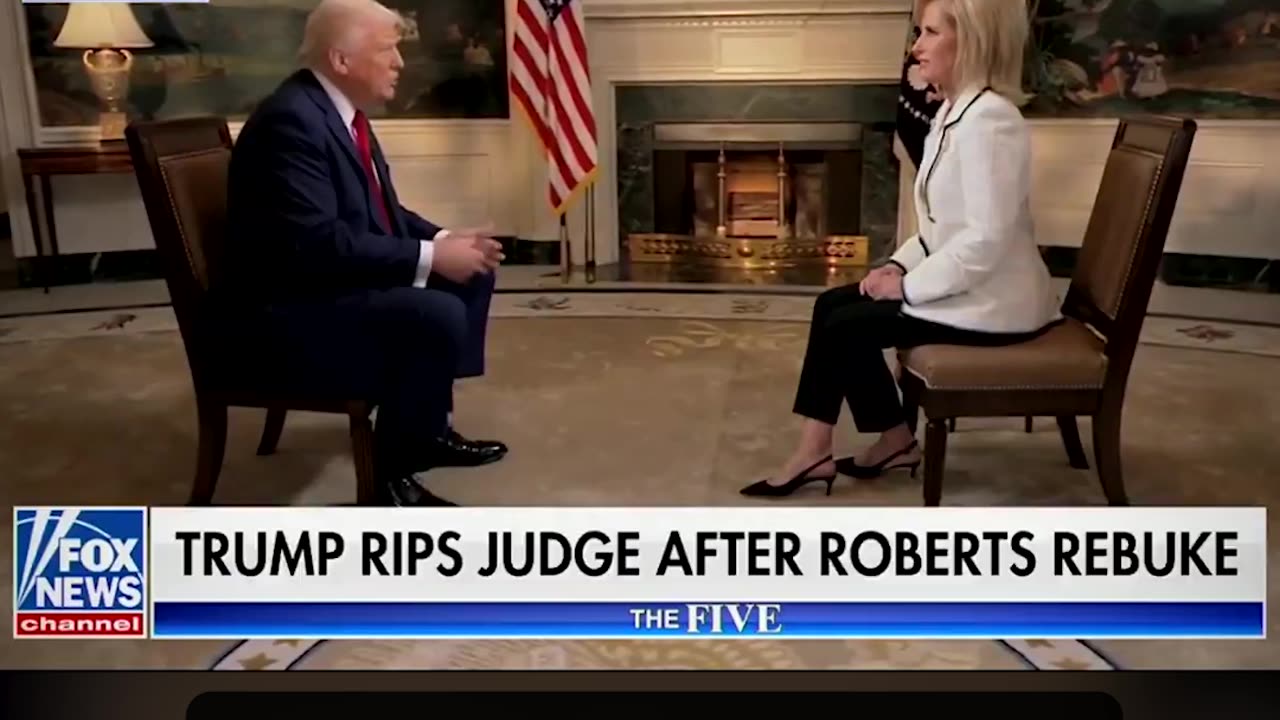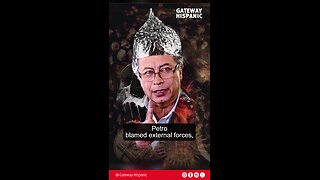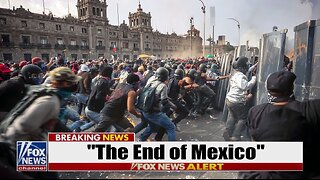Premium Only Content

Trump - That’s not for a local judge to be making that determination
Trump lashes out at radical left judge for blocking deportations of dangerous criminals
In a recent confrontation highlighting tensions between the executive and judicial branches, President Donald Trump has harshly criticized Judge James E. Boasberg, whom he labeled as part of the "radical left" and noted his appointment during Barack Obama's administration. The controversy arose after Boasberg issued an order to temporarily halt the deportation of nearly 300 Venezuelans, many of whom are alleged members of dangerous criminal gangs.
President Trump expressed his indignation on the matter: "I don't know who the judge is, but he's from the radical left and was appointed by Obama. He actually said we shouldn't be able to remove criminals, murderers, thugs, horrible people. The worst people, gang members, gang leaders, that we shouldn't be allowed to remove them from our country. Well, that's a presidential job. It's not for a local judge to be making that determination."
Judge Boasberg's decision was based on the Trump administration’s activation of the Alien Enemies Act of 1798, a rarely used legislation that allows the president to deport foreigners deemed dangerous. This law has been invoked only a few times throughout U.S. history, and its current use has sparked debates about its applicability and scope.
The White House, defying the court order, proceeded with the deportations, arguing that the planes carrying the deportees had already left U.S. jurisdiction. This action has been seen by some as a direct challenge to judicial authority and has raised concerns about a potential constitutional crisis.
Trump’s response has been backed by several Republican Party members, who have initiated legislative procedures to remove Judge Boasberg. They argue that his decisions hinder the president's ability to ensure national security and protect citizens from foreign threats.
However, this stance has been criticized by defenders of judicial independence, who argue that removing a judge for his decisions threatens the separation of powers and the integrity of the judicial system. Supreme Court Chief Justice John Roberts issued a rare public statement reminding that the appeals process exists to challenge judicial decisions and that impeachment should not be used as a tool for such purposes.
Meanwhile, in Venezuela, families of the deportees have recognized their loved ones in images of detainees in El Salvador, where they were sent under the accusation of belonging to the Tren de Aragua gang. These families insist on their children's innocence and denounce the lack of notification and due process in the deportations.
This confrontation highlights the complexities of immigration policy and the fight against transnational organized crime. The Trump administration has taken a firm stance against gangs and cartels, designating them as foreign terrorist organizations and seeking more aggressive measures to combat their influence.
The controversy also underscores the deep political divisions in the United States, where judicial decisions can be perceived as obstacles to national security policies by the executive branch. Trump's reaction reflects frustration with what he and his supporters see as judicial interference in implementing policies aimed at protecting the country from external threats.
In conclusion, the dispute between President Trump and Judge Boasberg exemplifies the inherent tensions in a democratic system where the executive and judicial powers must balance each other. While the administration seeks strong measures against international organized crime, it is essential that these actions are carried out within the legal framework and in accordance with the fundamental principles that sustain American democracy.
#NationalSecurity #JudicialIndependence #Deportations #CriminalGangs #Trump
-
 1:46
1:46
Gateway Hispanic
1 day agoHumillación histórica de Gustavo Petro en La Cumbre CELAC-UE
101 -
 LIVE
LIVE
SpartakusLIVE
5 hours agoSolos on WZ to Start then ARC?! || Friends: UNBANNED
254 watching -
 12:58
12:58
Cash Jordan
5 hours agoMexican MOB OVERTHROWS Capital... as "Socialist President" FLOODS AMERICA with CARTELS
1801 -
 23:13
23:13
Jasmin Laine
6 hours agoPBO Breaks His Silence—“This Is Soviet Stuff”… and the Panel EXPLODES
7927 -
 LIVE
LIVE
Jamie Kennedy
19 hours agoCatching Up With Deep Roy: JKX Stories, Star Wars Secrets, and Total Chaos | Ep 231 HTBITY
123 watching -
 LIVE
LIVE
ThisIsDeLaCruz
59 minutes agoThe Secrets Behind Madonna’s Legendary Live Sound
44 watching -
 1:22:15
1:22:15
Glenn Greenwald
5 hours agoTrump and JD Vance Weigh in on the MAGA Civil War Over Tucker; Zelensky's Top Associates Embroiled in $100 Million Corruption Scandal; FBI's Ongoing Concealment About Trump Shooter | SYSTEM UPDATE #548
94.3K81 -
 LIVE
LIVE
megimu32
1 hour agoON THE SUBJECT: 2000s Pop Punk & Emo Nostalgia — Why It Still Hits
136 watching -
 LIVE
LIVE
VapinGamers
2 hours ago $0.20 earnedBattlefield RedSec - Getting Carried Maybe? I Need the Wins! - !rumbot !music
114 watching -
 1:02:08
1:02:08
BonginoReport
5 hours agoThe Internet’s NSFW Reactions To “Bubba” Email - Nightly Scroll w/ Hayley Caronia (Ep.179)
59.1K42